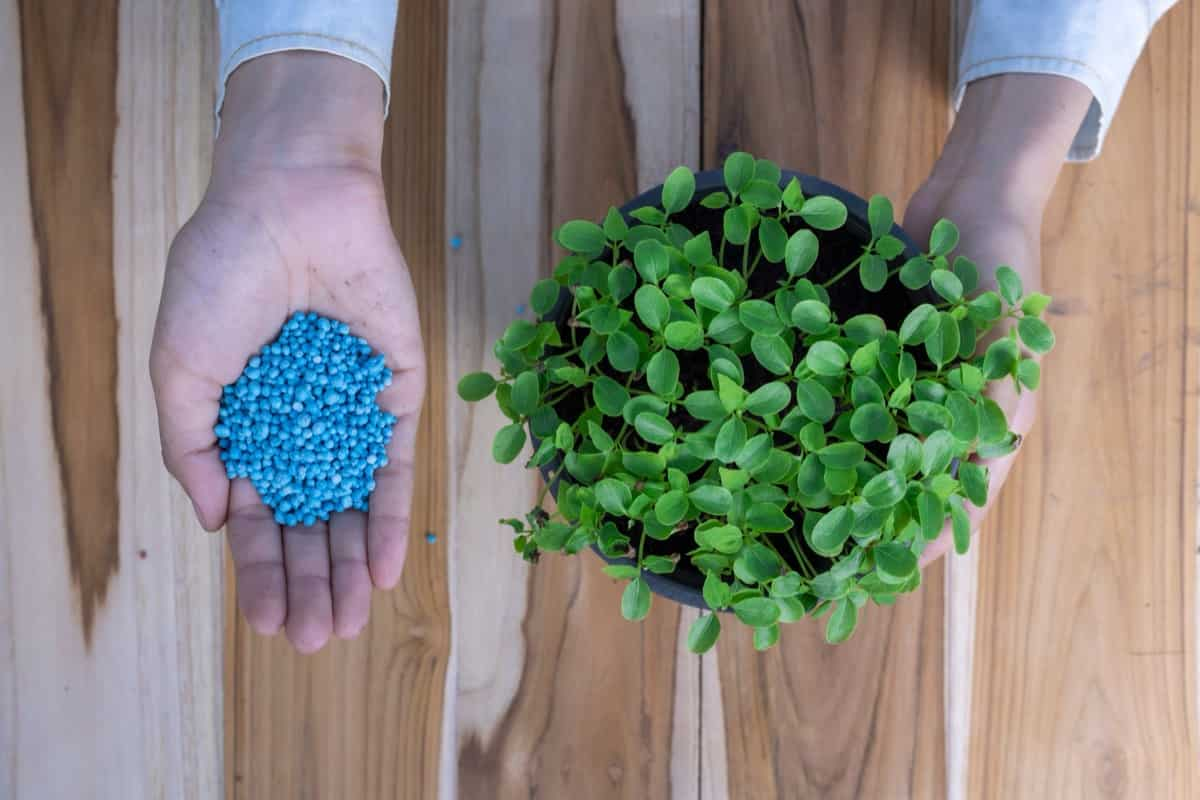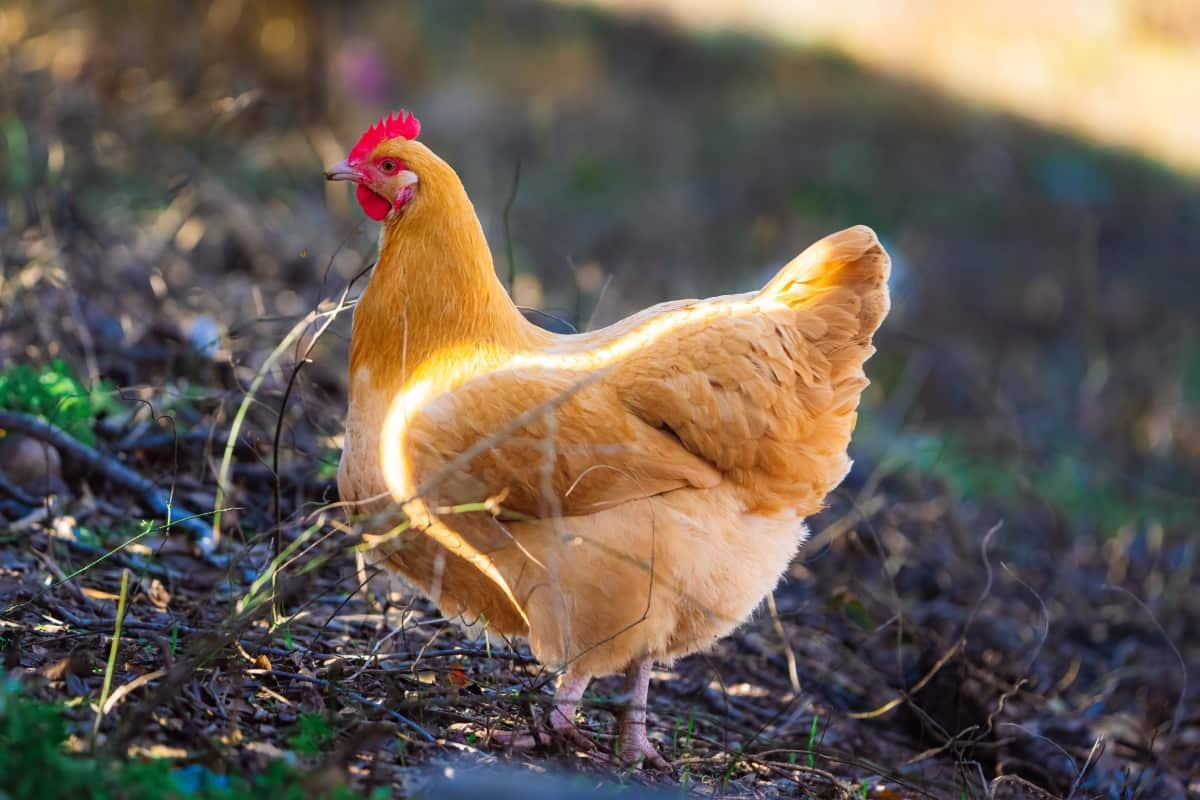San Joaquin Valley Agriculture and Food Project Receives $16 Million in Federal Funding
“This project will expand current efforts to help small farmers access equipment, new markets and technical assistance,” said Ruth Dahlquist-Willard, showing how to assess soil moisture with Michael Yang. Photo by Ka Xiong
Local food marketing, business and market support for small farmers and food producers, new agricultural products and technology development are part of a University of California agriculture and natural resources project designed to boost jobs and farm resilience in the San Joaquin Valley. .
The Fresno-Merced Future of Food Innovation Coalition, or F3, has received a $65.1 million grant from the U.S. Department of Commerce as part of the $1 billion regional Build Back Better challenge. Of this award, approximately $16 million is earmarked for the local agricultural and food innovation initiative led by UCANR. With the addition of the corresponding share of cost contributions, the total UC ANR project budget exceeds $20.5 million.
“As a key part of the larger F3 project, this grassroots agriculture and food innovation initiative is going to be transformative,” said Glenda Humiston, University of California Vice President for Agriculture and Food. natural resources. "By strengthening the elements of the food system to better support each other and drive innovation across the region, it will bring many environmental and economic benefits to Californians."
Gabriel Youtsey is Director of Innovation for The VINE, a UC ANR initiative that helps new technologies get to market and businesses get started by connecting entrepreneurs with mentors and resources, and aligning the technological development of universities and startups on the needs of industry.
"The Local Farm and Food Innovation initiative is a win for inclusive innovation in San Joaquin Valley agriculture and a critical part of the F3 project," said Youtsey. "It provides a wide range of training and support resources and expertise to help farms, producers and food vendors of all sizes grow their businesses profitably and sustainably, in line with the economic objectives of the region."
To ensure that technology solutions meet the needs of smallholder farmers, food business owners and local communities, they will be invited to participate in leading innovation activities, Youtsey said.
"With our deep roots in the San Joaquin Valley, UC Cooperative Extension is uniquely positioned to leverage the expertise of other parts of UC and expand its efforts to help farmers and food entrepreneurs achieve sustainable prosperity and community resilience,” said Humiston. “UC ANR experts are already helping immigrants and other underserved communities adapt to climate change, add flexibility to supply chains and develop grassroots innovations. We are excited that the federal government is investing to make food systems more equitable and cost-effective, and solutions more scalable. »
To help small-scale farmers comply with new regulations and production challenges, adapt to climate change and find new markets for their products, UC ANR is convening the Small Farms Technology and Innovation Alliance. They work with the Community Alliance with Family Farmers and other nonprofits to provide translation services, training, and marketing assistance to farmers and food producers.
Ruth Dahlquist-Willard, UC Cooperative Extension Small Farm Advisor for Fresno and Tulare Counties, and Houston Wilson, director of the UC Organic Agriculture Institute and specialist in tree crop entomology from the UC Cooperative Extension based at the UC Kearney Agricultural Research and Extension Center in Parlier, are leading outreach and engagement with smallholder and organic farmers.
“While we certainly need to create new tools to address the unique challenges of organic farming, it is essential that farmers and other end users are involved from start to finish,” Wilson said. "Developing appropriate technology requires communication between a wide range of stakeholders."
To make new technologies more accessible to small-scale farmers and food producers, UC ANR will create a new team to test and demonstrate the technology developed within the framework of F3 and by startups around the world. To promote adoption, the team will create a tool lending library so farmers can borrow and try out equipment and get training on how to use it.
"This project will expand current efforts to...


“This project will expand current efforts to help small farmers access equipment, new markets and technical assistance,” said Ruth Dahlquist-Willard, showing how to assess soil moisture with Michael Yang. Photo by Ka Xiong
Local food marketing, business and market support for small farmers and food producers, new agricultural products and technology development are part of a University of California agriculture and natural resources project designed to boost jobs and farm resilience in the San Joaquin Valley. .
The Fresno-Merced Future of Food Innovation Coalition, or F3, has received a $65.1 million grant from the U.S. Department of Commerce as part of the $1 billion regional Build Back Better challenge. Of this award, approximately $16 million is earmarked for the local agricultural and food innovation initiative led by UCANR. With the addition of the corresponding share of cost contributions, the total UC ANR project budget exceeds $20.5 million.
“As a key part of the larger F3 project, this grassroots agriculture and food innovation initiative is going to be transformative,” said Glenda Humiston, University of California Vice President for Agriculture and Food. natural resources. "By strengthening the elements of the food system to better support each other and drive innovation across the region, it will bring many environmental and economic benefits to Californians."
Gabriel Youtsey is Director of Innovation for The VINE, a UC ANR initiative that helps new technologies get to market and businesses get started by connecting entrepreneurs with mentors and resources, and aligning the technological development of universities and startups on the needs of industry.
"The Local Farm and Food Innovation initiative is a win for inclusive innovation in San Joaquin Valley agriculture and a critical part of the F3 project," said Youtsey. "It provides a wide range of training and support resources and expertise to help farms, producers and food vendors of all sizes grow their businesses profitably and sustainably, in line with the economic objectives of the region."
To ensure that technology solutions meet the needs of smallholder farmers, food business owners and local communities, they will be invited to participate in leading innovation activities, Youtsey said.
"With our deep roots in the San Joaquin Valley, UC Cooperative Extension is uniquely positioned to leverage the expertise of other parts of UC and expand its efforts to help farmers and food entrepreneurs achieve sustainable prosperity and community resilience,” said Humiston. “UC ANR experts are already helping immigrants and other underserved communities adapt to climate change, add flexibility to supply chains and develop grassroots innovations. We are excited that the federal government is investing to make food systems more equitable and cost-effective, and solutions more scalable. »
To help small-scale farmers comply with new regulations and production challenges, adapt to climate change and find new markets for their products, UC ANR is convening the Small Farms Technology and Innovation Alliance. They work with the Community Alliance with Family Farmers and other nonprofits to provide translation services, training, and marketing assistance to farmers and food producers.
Ruth Dahlquist-Willard, UC Cooperative Extension Small Farm Advisor for Fresno and Tulare Counties, and Houston Wilson, director of the UC Organic Agriculture Institute and specialist in tree crop entomology from the UC Cooperative Extension based at the UC Kearney Agricultural Research and Extension Center in Parlier, are leading outreach and engagement with smallholder and organic farmers.
“While we certainly need to create new tools to address the unique challenges of organic farming, it is essential that farmers and other end users are involved from start to finish,” Wilson said. "Developing appropriate technology requires communication between a wide range of stakeholders."
To make new technologies more accessible to small-scale farmers and food producers, UC ANR will create a new team to test and demonstrate the technology developed within the framework of F3 and by startups around the world. To promote adoption, the team will create a tool lending library so farmers can borrow and try out equipment and get training on how to use it.
"This project will expand current efforts to...
What's Your Reaction?














![Three of ID's top PR executives quit ad firm Powerhouse [EXCLUSIVE]](https://variety.com/wp-content/uploads/2023/02/ID-PR-Logo.jpg?#)







